Social Media Content Toolkit

Introduction
Welcome to the Social Media Content Toolkit. This toolkit will walk you through three competency areas to help you create more relevant and consistent social media content. As an HIV prevention program funded to use social media for program promotion and recruitment, this toolkit will help you relate and build rapport with your audience. The Social Media Content Toolkit is a product of the Capacity Building Assistance (CBA) program at California Prevention Training Center (CAPTC). The resources and tools within were vetted by the CAPTC CBA team and our Subject Matter Expert at the Centers for Disease Control and Prevention (CDC) HIV Prevention Capacity Development Branch.
Purpose and Goal
The purpose of the Social Media Content Toolkit is to provide HIV prevention program managers and outreach staff in the West geographic region of the United States with resources and tools for creating more relevant and consistent social media content for their prioritized audience. The goal of this toolkit is to develop more relevant and consistent social media content and begin to increase online engagement and brand awareness.
Objectives
By the end of the Social Media Content Toolkit, you will be able to:
- Define your prioritized audience through audience research.
- Create a persona to represent your audience.
- Create a persona to represent your brand’s personality.
- Define your brand voice for social media.
- Describe the difference between sales and marketing content.
- Apply the “80/20 Rule” to five social media posts.
How to Use
The toolkit features three competency areas with three processing questions in each area. We have included an order for navigation. We recommend you proceed in order as it follows a sequential process. It is also recommended that at least two people on your team review the toolkit and discuss the processing questions to apply the tools wherein.
Toolkit Competency Areas
Objectives:
After completing this competency area, you will be able to:
- Define your prioritized audience through audience research.
- Create a persona to represent your audience.
Estimated time to complete: 6-8 weeks.
This competency will walk you through how to conduct audience research to define your prioritized audience and how to create a persona to represent your audience.
A prioritized audience, also known as an audience or a target audience, is the specific group of consumers most likely to want or need your product or service, and therefore, are the group of people who should see your ad campaigns (1). A prioritized audience can be determined by age, gender, income, location, interests or a variety of other factors (1). Additionally, a prioritized audience for public health programs can be determined by considering factors related to certain health conditions or concerns. For your program, your prioritized audience is your priority population.
Audience research establishes the size, composition, and characteristics of a group of individuals who are, or could be, potential customers (2). This is an opportunity to gain insight on how your ideal consumers think, act and live their lives, thus enhancing the quality of your social media content and campaigns. It also helps you understand your audience’s pain points; specific problems your prospective consumers are experiencing (3). This will help determine how best to position your services in your marketing to address your ideal consumers’ pain points.
There are three types of data to gather (2):
Demographic Data
Demographic data is commonly collected data that describes your audience. This is information your program should already have: age, gender, location, profession, marital status, and education as well as their sexual health factors. This will help you get an initial look and peel back the first layer of understanding your prioritized audience.Psychographic Data
Psychographic data looks at how your audience thinks, feels and believes about specific topics. This data uncovers the more nuanced and complex aspects of your prioritized audience, such as their needs, interests and values. This data will also uncover their pain points as well as their beliefs, fears, life goals, and aspirations.Behavioral Data
Behavioral data explains behaviors related to specific topics. This data will uncover how they use your services and those of similar programs, how they navigate your social media and website, and how they behave online. This will give you a better understanding of their behavior as a potential consumer. You will also want to learn who and where the audience turns to for information. This will give insight into the sources that are influencing their thinking and behavior.
You want to have a good understanding of the prioritized audience’s demographics, psychographics, and behaviors as each of these areas will provide insight that will help enhance your content. It could take about 6-7 weeks to gather and analyze the data (4). However, this could take less or more time depending on the project and level of complexity. Existing staff can collect data with members of the prioritized audience, or, if resources and the opportunity permit, interns or consultants can conduct the research. Research can also be conducted by inter-weaving data collection into existing activities.
Program staff can:
- Arrange a focus group session during a Community Advisory Board meeting.
- Develop and administer a survey to clients who represent your audience.
- Directly ask questions to members of your audience during street outreach.
- Have discussions with gatekeepers and influencers to learn about your audience.
- Review social media groups and pages where your audience frequents.
As you plan to gather information, there is a helpful resource to review. This resource is a short video clip from Lee Frederiksen from Hinge (5). In this video, Lee reviews three strategies for researching target audiences. After you watch the video, discuss the processing questions with your team.
Processing Questions:
- Which persons on your team will oversee the data collection process?
- What external and internal resources can you leverage to help your team collect the data?
- How might you apply the strategies and resources described in this section to gather insights from your prioritized audience?
After you collect your data, the next step is to use the information to create an audience persona. An audience persona, also known as a buyer’s persona, is a detailed description of someone who represents your audience (6). This persona is fictional but based on deep data of your existing or desired audience (6). A persona will help you craft messages tailored directly to your audience. To create an audience persona, open and download our fillable Audience Persona Template and review the step-by-step guide and examples from Stacey McLachlan of Hootsuite. Pretend you are creating a social media profile for a real person with an “About Me” statement.
Once you develop your audience persona, proceed to the next competency area.
Objectives:
After completing this competency area, you will be able to:
- Create a persona to represent your brand’s personality.
- Define your brand voice for social media.
Estimated Time to Complete: 2-4 weeks.
Now that you have defined your prioritized audience and created an audience persona, it is time to develop a persona for your brand and define your brand voice for social media.
Brand voice refers to the way a brand portrays itself through words. It is the linguistics that conveys the personality of a brand (7). A brand is the identity and story of a company that makes it stand out from competitors that sell similar products or services (8). Every business has a brand with a unique personality and voice. A well-defined brand voice helps ensure consistency in your messaging and language, builds a relationship with your audience, and avoids common missteps, such as inconsistent tone or misrepresenting language (7).
Christina Newberry of Hootsuite offers the following steps and recommendations to build a compelling brand voice:
Research Your Audience
You completed this step in the first competency. However, the goal here is to know what your audience thinks about your services and those of other prevention programs. You also want to know where and how they communicate online. This will help create the right messaging for your prioritized audience on the appropriate networks.Define Your Mission
This is where you define the mission of your brand. This is the purpose of your program. After you have defined your mission, think of how you can leverage it to relate to your audience on social media. Consider how your mission and services can address your audience’s pain points. This insight will help identify traits, specific words and phrases, to shape your brand’s personality.Describe Your Brand’s Personality
This is where you will create a persona representing your brand. Based on your mission and how your services will benefit the audience, list five traits that describe your brand. The traits can be standalone words like funny, wise, supportive, or they could be contrasting words like wise but inquisitive. Like your audience persona, your brand persona will have a name, demographics and a description. It is recommended to align your brand persona to your audience persona (7). It does not have to be apples to apples, but it needs to have attributes your audience will respect, like, and trust.You can either create an invented persona, like a fictional character, or a real persona, like a celebrity or someone you know, to represent your brand. ThoughtForm states that an invented persona can be suited to fit your brand perfectly. However, with a real persona you do not have to work as hard to define the person and their style (9).
Define Your Brand Voice
Based on your brand persona, identify specific words and phrases that your program will use and avoid. Specify language to describe your services, team, and organization. This is where you can get incredibly detailed and granular. For example, if one of your traits is “supportive”, your program may use words and phrases like “encourage” and “we got your back”, while avoiding words and phrases that could come across to the audience as discouraging and antagonistic. Include a list of branded hashtags. There is no set amount or limit to words, phrases, and hashtags you can list.Allow nuance between platforms. It is recommended that you use the social media platform that aligns best with your audience (10). This is information you should have from the behavioral data collected. Please click here for more information on the best social media platforms for businesses. Depending on the platforms you are using to reach your prioritized audience, allow room to adjust certain aspects of your brand voice across channels. Where your brand’s personality and voice need to be consistent, there should be slight adjustments to adapt your voice to the platform you are using.
Christina Newberry offers this example: It would be weird to use the same words in a blog post, a Tweet, and an Instagram Reel. The language of one does not make sense for the other. But the Tweet and the Reel should be recognizable as coming from the same brand.
Test and tweak your brand’s personality and voice. Like a human’s personality and voice, your brand’s personality and voice will change. As new information emerges from your social media analytics and you determine which messages are and are not working, particularly language trends that are effective with your prioritized audience, make necessary adjustments to your brand’s personality and voice.
It is also recommended that you develop a style guide that will encompass specifics on brand voice, logos, font types, sizes, and color schemes for all digital media. A style guide will ensure consistency among everyone marketing and representing your brand to your audience. The estimated time to create a style guide varies based on complexity. Take a moment to check out examples of brand voices presented in this article from Hootsuite.
Discuss the processing questions below with your team to create your brand persona and define your brand voice. You can open and download our fillable Brand Persona Template here.
Processing Questions:
- What does the audience think about your services and the services of other prevention programs in your community? What can you offer to make your audience’s life easier, better, and more enjoyable? How can your services stand out?
- Based on your response to the previous questions, what are five traits that describe your brand’s personality? If your brand were a person, whether invented or real, who would it be? What would be their name, demographics, and description of their traits in relation to your prioritized audience? Use the brand persona template to address this question.
- Based on your brand persona, what specific words and phrases will you use and avoid to convey your brand’s personality on social media?
After you develop your brand persona and brand voice, proceed to the next competency area.
Conclusion
Congratulations! You have successfully reached the end of the Social Media Content Toolkit. We hope you have gained new skills through these resources and tools to produce more relevant and consistent social media content. Successfully generating new clients from social media takes time and consistency. We encourage you to be patient and produce a steady stream of content. You can create ads and work with local and well-known influencers to reach your prioritized audience. However, time and consistency are the keys to success.
Technical Assistance
CAPTC offers free technical assistance to entities directly and indirectly funded through the CDC. If you and your team need social media technical assistance, please submit a request through the CBA Tracking System (CTS). If you are a directly funded agency, please check with your CDC project officer or submit a CTS request. If you are not directly funded by CDC, you can contact the CDC-funded health department in your jurisdiction to submit a CTS request.
References
The following is a list of references used to create the Social Media Content Toolkit. You are encouraged to visit these references to gain additional tools and information.
- Marketing Evolution. Steps to find your target audience. Published 2022 July 20. Cited 2023 Sept 27. Available from URL: https://www.marketingevolution.com/marketing-essentials/target-audience#
- Digital Marketing Institute. Audience research: Digital marketing – study notes. Cited 2023 Sept 27. Available from URL: https://digitalmarketinginstitute.com/resources/lessons/introduction-to-digital-marketing_audience-research_furn#
- Shewan, D. Word Stream. Pain points: A guide to finding and solving your customers’ problems. Last updated 2023 Dec 19. Cited 2023 Sept 27. Available from URL: https://www.wordstream.com/blog/ws/2018/02/28/pain-points
- Deka Insight. How long does it take to do marketing research. Cited 2023 Oct 10. Available from URL: https://www.dekainsight.com/Blog/detail/how-long-does-it-take-to-do-marketing-research.html#
- Frederiksen, L. Hinge. 3 strategies for researching your target audiences. Published 2017 Nov 5. Cited 2023 Sept 28. Available from URL: https://www.youtube.com/watch?app=desktop&v=u0qhtq6_5n0
- McLachlan, S. Hootsuite Blog. How to create a buyer persona. Published 2021 Nov 9. Cited 2023 Oct 3. Available from URL: https://blog.hootsuite.com/buyer-persona/
- Newberry, C. Hootsuite Blog. How to build a strong brand voice on social media (and beyond). Published 2023 Jun 14. Cited 2023 Oct 3. Available from URL: https://blog.hootsuite.com/brand-voice/
- Decker, A. HubSpot. What is branding? Understanding its importance in 2023. Published 2023 Mar 15. Updated 2023 Mar 15. Cited 2023 Oct 10. Available from URL: https://blog.hubspot.com/marketing/branding
- Thoughtform. How to use personas to develop your brand voice. Cited 2023 Oct 3. Available from URL: https://thoughtform.com/conversations/blog/how-to-use-personas-to-develop-your-brand-voice/
- McLachlan, S., Newberry, C. Hootsuite Blog. Social media for business: A practical guide. Published 2023 Sept 7. Cited 2024 Jan 30. Available from URL: https://blog.hootsuite.com/social-media-for-business/#Best_social_media_platforms_for_business
- Ritchie, J. Column Five Media. What’s the real difference between sales and marketing content? Cited 2023 Oct 10. Available from URL: https://www.columnfivemedia.com/sales-content-vs-marketing-content-know-difference/
- Potter, J. Five Minute Social Media. Why isn’t anyone clicking on my Facebook posts? Published 2017 Aug 16. Cited 2023 Oct 10. Available from URL: https://www.youtube.com/watch?v=u1Tl-_FH_4o
- McLachlan, S. Hootsuite Blog. Ideal Length of social media posts: A guide for every platform. Published 2022 Aug 2. Cited 2023 Oct 10. Available from URL: https://blog.hootsuite.com/ideal-social-media-post-length/
- Christison, C. Hootsuite Blog. How to increase social media engagement. Published 2023 Oct 16. Cited 2023 Oct 20. Available from URL: https://blog.hootsuite.com/social-media-engagement/





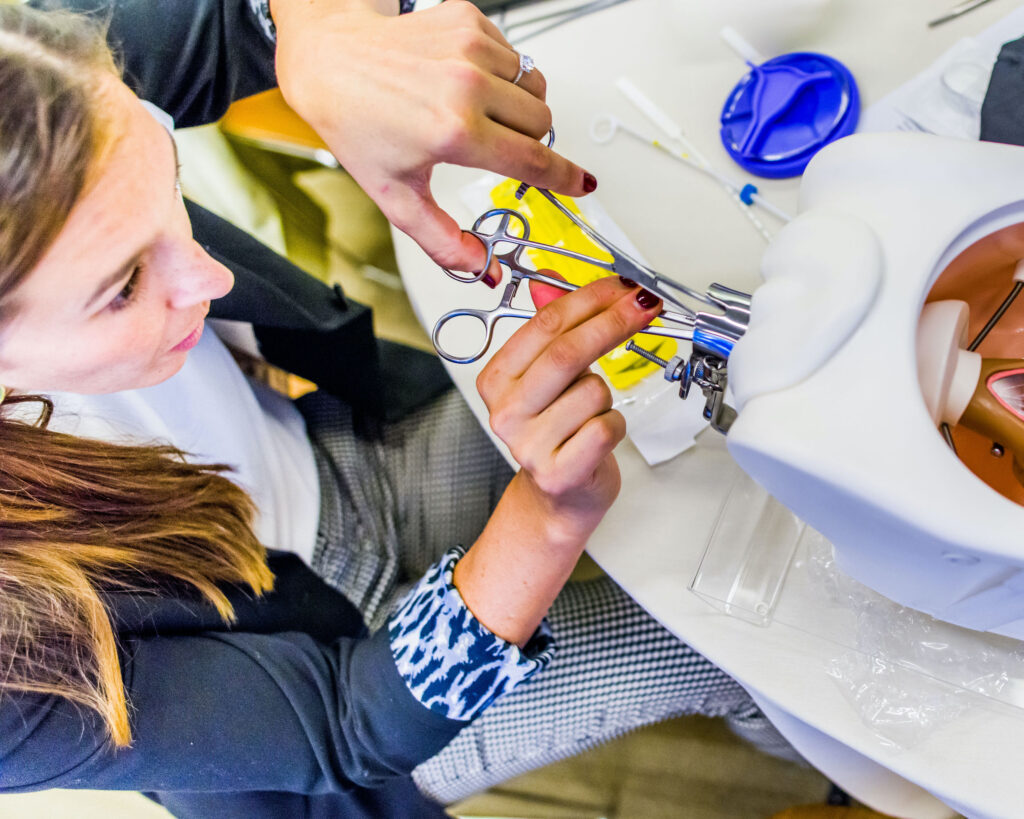





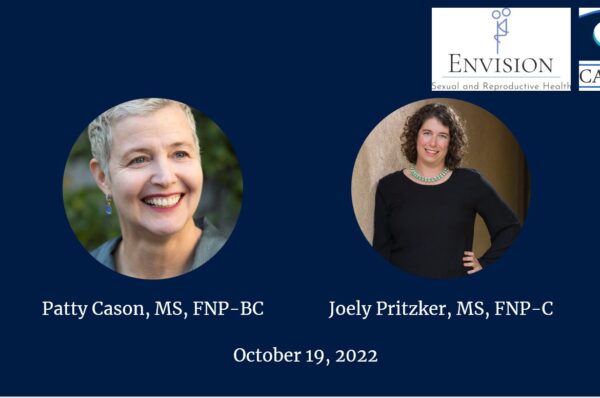






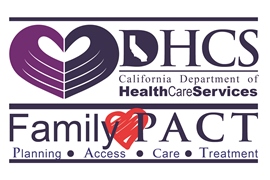
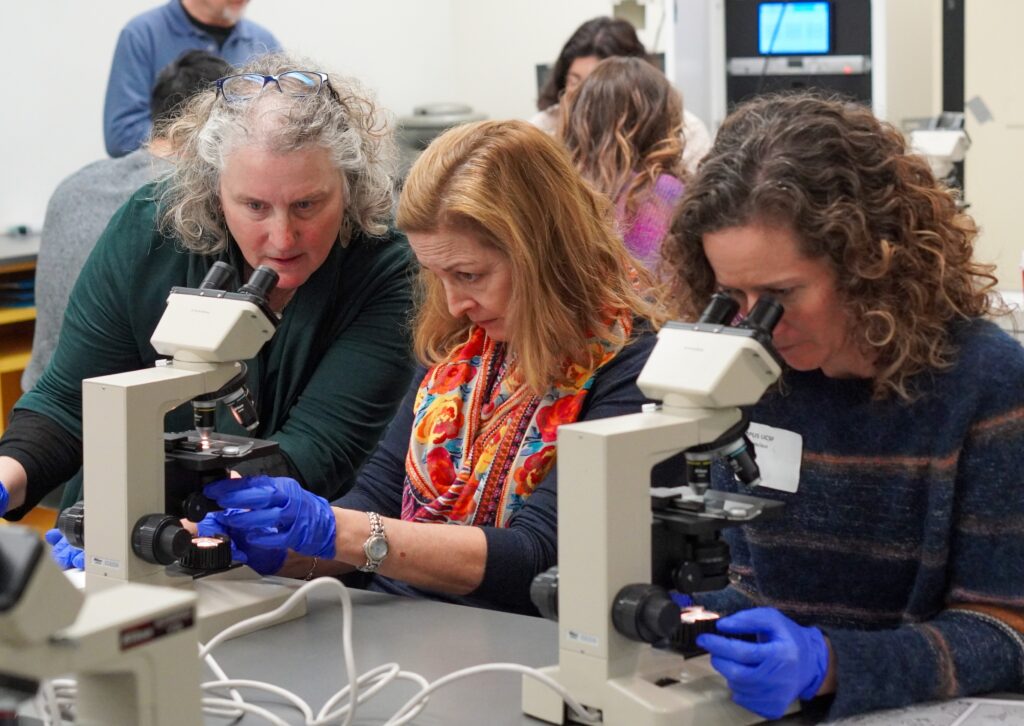

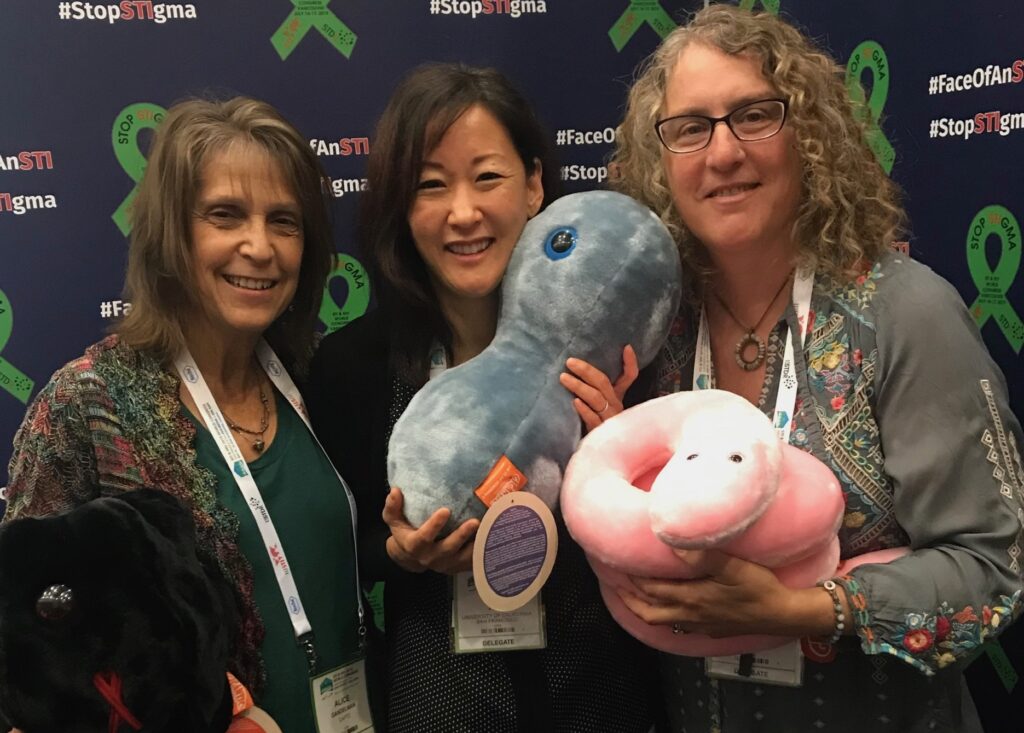




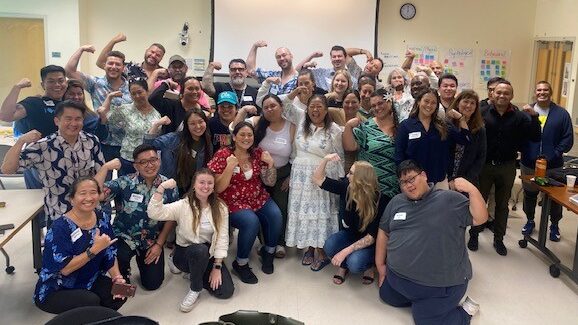


Objectives:
After completing this competency area, you will be able to:
Estimated Time to Complete: 1-2 days.
Now that you have your personas and a defined brand voice, it is time to use them to create more relevant and consistent social media content. In this competency area, you will learn the difference between sales and marketing content and apply the “80/20 Rule”. This is where your brand persona will use its voice to initiate online conversations with your audience persona largely based on topics the audience persona prefers.
For HIV prevention programs, the purpose of using social media is to promote program activities and engage individuals for testing and prevention services. With this purpose, your program may primarily post content about the importance of HIV prevention strategies and your outreach activities. Where this is critical to share, your program also needs to leverage other content and messages to better reach and engage your prioritized audience.
There are two types of content used by brands on social media:
To be successful in building rapport with the audience while meeting strategic goals, businesses, including HIV prevention programs, need to leverage both sales and marketing content. There is a ratioed balance to leveraging both. To help cultivate that balance, please watch this video from Jerry Potter of Five Minute Social Media on YouTube (12).
Now that you know the difference between sales and marketing content and the “80/20 Rule”, it is time to apply the rule by creating five posts for a social media platform. As stated in the previous competency, it is recommended that you use the social media platform that aligns best with your audience. For your posts, you will create four based on topics that will be relevant to your audience persona. This will be eighty percent of your posts. One post, the remaining twenty percent, will be promotional about your program. The tone you will use to deliver each post and convey your personality will be dictated by your brand persona. To further support how you write your posts, please take a moment to review this resource from Hootsuite. Discuss the processing questions below and use our downloadable, fillable Social Media Content Template to create your posts.
For strategies to increase engagement, please check out this guide from Hootsuite.
Processing Questions: